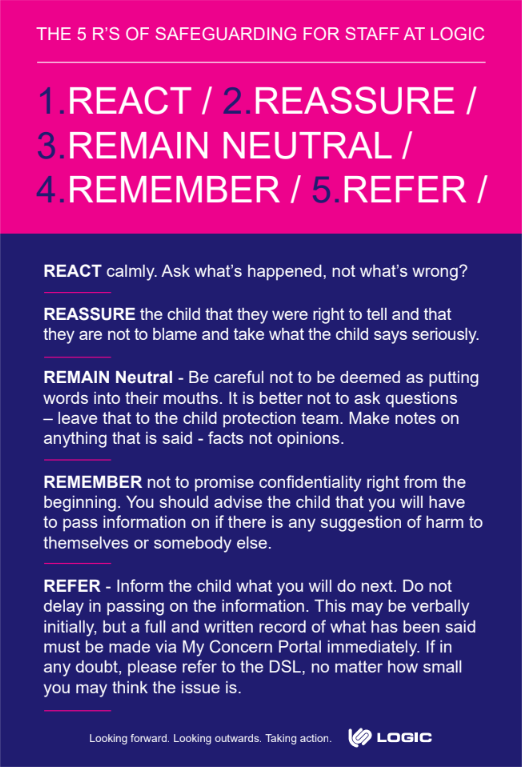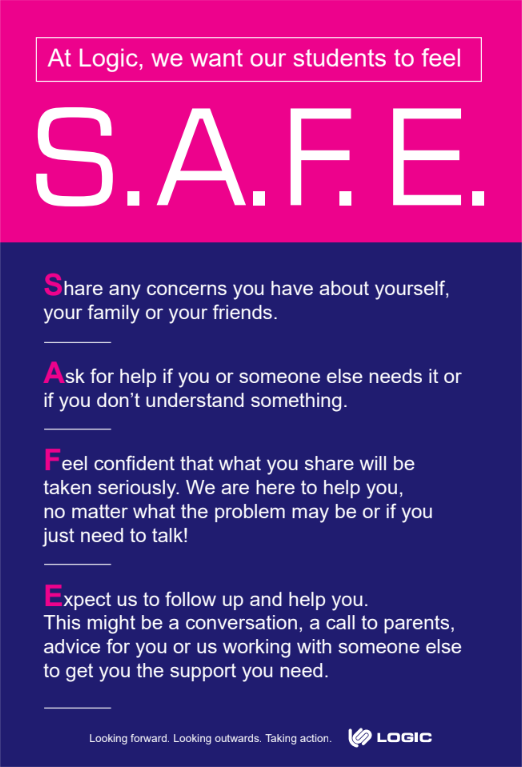Online Safety
As the world becomes more and more digital, keeping your child safe online becomes more and more important. Given the rate at which new services pop up, we know that staying on top of this can seem like an insurmountable challenge.
What we do
As a computing focused school you can rightly expect that our systems lead the way in keeping students safe online. We place our focus in two key areas:
- Education Ensuring students are taught about how to make use of technology whilst being mindful of digital well-being. Through our PSHE programme we discuss issues such as how to recognise fake news, appropriate behaviors online and what measures you can take to keep your identity safe.
- Monitoring All computer activity is carefully monitored at our site. Students can only access devices through credentials that are unique to them. This allows us to insure that they do not have access to websites or material that we deem unsafe. In addition, keyword detection is constantly on guard for any behaviours that could be deemed harmful. For example, messages sent via email will be automatically captured (and staff alerted) if they contain offensive terms.
It is our intention that between these measures most potentially harmful behaviours are caught allowing us to have informed conversations with all involved.
What you can do
As with everything we do here at Logic, we are as in control as we can be during the school day, beyond this there are limitations to what we are able to do. This is where our partnership with parents becomes so important.
It is vital that you speak to your child regularly about their use of social media, the internet and everything else digital. This should not be to enforce rules or judge, but to allow you to build up a picture of ‘normal’ behaviour. By doing so, you will find it easier to spot abnormal behaviour. It is also key that your child feels confident to talk to you about their experience.
Included on this page are a number of fact sheets to empower you to have more meaningful discussions with your child around some of the apps they choose to use.
On top of this, your internet service provider (BT, Virgin, Sky etc) will likely have a number of tools that you can use to filter, monitor or restrict what devices are able to do in your own home. For instance, BT Parental Controls allow you to set different access levels for different devices in your home.
We would also direct you to information from the NSPCC and Childline that you may find supportive.
As with everything, communication with us is so important. If you have any concerns at all, please do contact us here, or email a member of the team.


